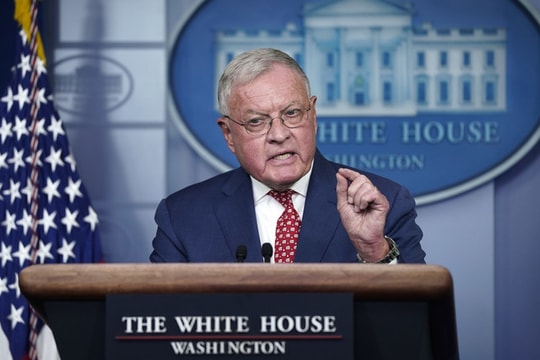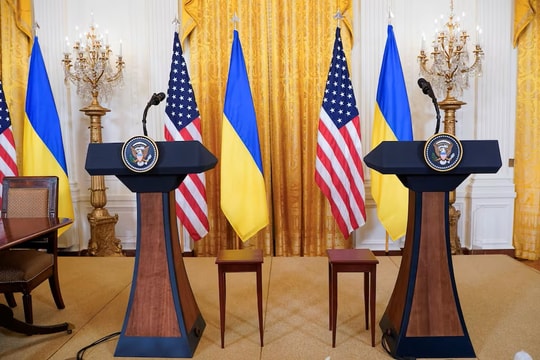Trump: The US will not protect NATO members if they do not spend enough on defense
US President Donald Trump on March 6 questioned Washington's commitment to defending NATO allies, saying he would not do so if they did not pay enough for their own defense.

“It’s common sense, right,” US President Trump told reporters in the Oval Office. “If they don’t pay, I’m not going to protect them. No, I’m not going to protect them.”
Trump said he has held this view for years and shared it with NATO allies during his 2017-2021 presidency. He said those efforts have pushed other members of the 75-year-old transatlantic alliance to spend more, but "even now, it's not enough."
“They should pay more,” he added.
A mutual assistance clause is at the heart of the NATO alliance, which was founded in 1949 with the primary goal of countering the threat of a Soviet attack on allied territory.
Mr. Trump’s remarks could set off alarm bells in capitals from Europe to Asia, where leaders are already concerned about the possibility of the United States withdrawing from security commitments after Mr. Trump clashed with Ukrainian President Volodymyr Zelensky and showed a greater willingness to talk to Russian President Vladimir Putin.
Earlier on March 6, worried European leaders backed plans to increase defense spending and pledged continued support for Ukraine.
"I know some people may be concerned about the future of NATO," NATO Secretary General Mark Rutte said on March 6. "So let me be clear: The transatlantic relationship and the transatlantic partnership remain the cornerstone of our alliance. President Trump has affirmed the US commitment and his personal commitment to NATO, and he has also emphasized the expectation that we in Europe must do more in terms of defense spending."
In the Oval Office, Mr Trump said NATO members were his friends but questioned whether France or "some other countries" would protect the US in a time of crisis.
"Do you think they're going to come and protect us? They should," Mr. Trump said. "But I'm not so sure."
Trump said he saw NATO as having "potentially good" if the spending issues he saw could be addressed. "They're taking advantage of us on trade," he said of the security alliance.
Mr Trump affirmed America's commitment to NATO's collective defence last week in a joint press conference with British Prime Minister Keir Starmer.
At a meeting of European leaders in Brussels, French President Emmanuel Macron responded to Mr Trump's comments by recalling that France and other European countries joined US troops in the war in Afghanistan after 9/11.
"Not only the French, but also the Europeans were present when we were asked to go to Afghanistan. And by the way, they were not politely informed when (the US withdrew from Afghanistan)," Mr. Macron said. "We are loyal and reliable allies."
Mr Trump also mentioned the US alliance with Japan, which he affirmed in a joint statement with Tokyo last month that the relationship was "stronger than ever".
This mutual defense agreement stems from treaties signed after the end of World War II.
"We have a great relationship with Japan, but we have a pretty interesting agreement with them that we have to defend them, but they don't have to defend us. You know what? That's what the agreement says," Mr. Trump said on March 6.
"And by the way, they make a fortune off us economically... Who signed these agreements?"
The remarks were reminiscent of comments Mr. Trump made during a visit to Japan in 2019.
The Japanese Embassy did not immediately respond to a request for comment, but Nicholas Szechenyi, a Japan expert at the Center for Strategic and International Studies in Washington, said Trump's comments were "technically inaccurate."
Although Japan's post-World War II constitution once restricted its military activities, recent reforms have allowed Japan to exercise the right of collective self-defense and assist in defending the United States in certain circumstances, Szechenyi said.
Such cases include when an armed attack on a country with close ties to Japan threatens Japan's existence, he said.







